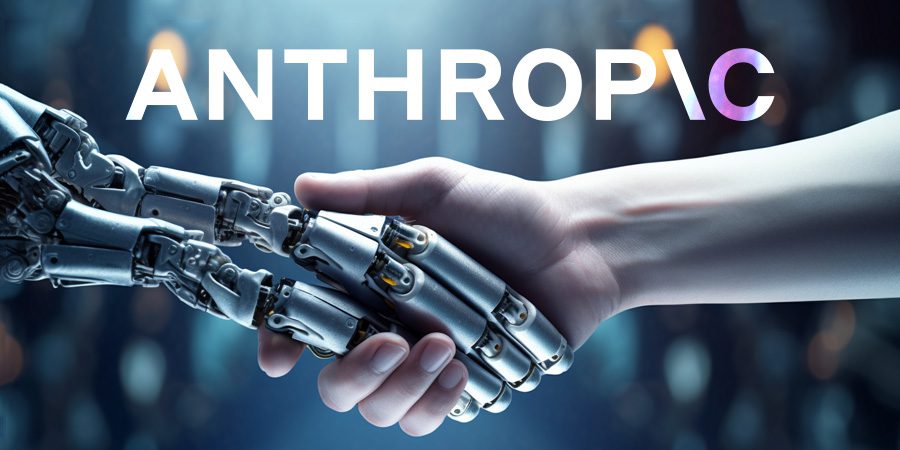In this article, we’ll look at the reasons behind Anthropic’s push for constitutional AI and explore the principles that guide their chatbot, Claude, towards being more helpful, honest, and harmless.
Key Takeaways:
- Anthropic focuses on constitutional AI to ensure safe AI behavior.
- The rules that govern the company’s actions are influenced by different references, such as the United Nations’ Universal Declaration of Human Rights and the terms and conditions of Apple.
- Constitutional AI aims to reduce reliance on human moderators and empower chatbots to self-regulate.
- The principles encourage responses that support freedom, equality, and non-discrimination.
- Anthropic stresses the importance of considering non-Western perspectives and avoiding harmful stereotypes.
- The constitution addresses existential threats posed by superintelligent AI systems.
Anthropic’s Background and Goals
Founded by former OpenAI employees, Anthropic is a relatively unknown player in the artificial intelligence industry.
Despite its low profile, the startup has garnered significant funding, including a $300 million investment from Google.
Anthropic recently participated in a White House regulatory discussion, sharing the table with representatives from tech giants like Microsoft and Alphabet.
The company’s flagship product is a chatbot named Claude, available primarily through Slack. Anthropic’s central objective is to make AI safe and ensure that chatbots adhere to ethical guidelines.
The Concept of Constitutional AI
In order to achieve its goals, Anthropic has developed an approach called “constitutional AI.”
This method trains AI systems, such as chatbots, to follow specific sets of rules or constitutions.
The traditional process of developing chatbots like ChatGPT involves human moderators, who evaluate the system’s output for issues like hate speech and toxicity.
This feedback is then used to refine the chatbot’s responses, a process known as “reinforcement learning from human feedback” (RLHF).
However, constitutional AI shifts much of this responsibility to the chatbot itself. Humans are still involved in the evaluation process, but the chatbot plays a more significant role in regulating its own behavior.
The Principles Guiding Anthropic’s Constitution
Anthropic’s constitution is a document that draws from a diverse range of sources, such as the United Nations’ Universal Declaration of Human Rights and Apple’s terms of service.
The principles included in the constitution are designed to guide the chatbot’s behavior, ensuring that it is helpful, honest, and harmless.
For instance, the principles emphasize the importance of promoting freedom, equality, and a sense of brotherhood.
They also stress the need to avoid racism, sexism, and discrimination based on factors like language, religion, or politics.
Furthermore, the constitution highlights the importance of supporting life, liberty, and personal security.
To minimize harmful content, the principles also advise against producing objectionable, offensive, deceptive, or inaccurate information.
Respecting privacy and confidentiality is another key aspect of the constitution, which urges chatbots to avoid sharing personal, private, or confidential information belonging to others.
Addressing Existential Threats and Immediate Risks
In addition to these guidelines, Anthropic’s constitution acknowledges the existential threats posed by superintelligent AI systems.
While some may view this as a controversial aspect of the constitution, Anthropic’s co-founder, Jared Kaplan, believes it is essential to consider both immediate and long-term risks associated with AI technology.
Kaplan argues that while existential threats may be a concern in the future, there are more immediate risks that need to be addressed.
Anthropic’s mission is not just to prevent “killer robots” but to ensure that chatbots exhibit responsible behavior in general.
Encouraging Public Discussion on AI Principles
Anthropic’s primary goal is not to impose specific values on its systems, but to demonstrate the effectiveness of constitutional AI as a method for guiding AI behavior.
Kaplan stresses the importance of sparking public discussions about how AI systems should be trained and what principles they should follow.
This is particularly relevant in the current AI landscape, where biases in chatbot technologies have led to heated debates.
While some conservatives argue against so-called “woke AI,” others, like Elon Musk, advocate for the development of “maximum truth-seeking AI.”
The Potential Dangers of Customizable AI Systems
Some experts in the AI field have raised concerns about the potential dangers of customizable AI systems.
While constitutional AI can be a powerful tool for guiding chatbot behavior, critics argue that allowing users to create their own constitutions could lead to the development of AI systems that reflect and amplify harmful beliefs or biases.
For instance, there is the possibility of creating chatbots that promote disinformation or extremist ideologies, simply by providing a constitution that supports such views.
As AI becomes increasingly advanced and integrated into our daily lives, the risk of misuse and malicious manipulation also grows.
In response to these concerns, Anthropic emphasizes the importance of striking a balance between customization and adherence to universal ethical principles.
The company is committed to fostering open dialogue around AI ethics and continuously refining its constitutional AI approach to minimize potential risks and ensure the safe development of AI technology.
Conclusion
Anthropic’s vision for ethical AI development represents a significant departure from the traditional methods of AI training.
By introducing constitutional AI, the company aims to equip chatbots with the ability to self-regulate their behavior according to ethical principles.
This innovative approach has the potential to revolutionize AI development while minimizing the risk of harm.
However, ensuring the safe implementation of customizable AI systems remains a challenge that will require ongoing collaboration and discussion among AI developers, policymakers, and the public.
 Sections of this topic
Sections of this topic
















